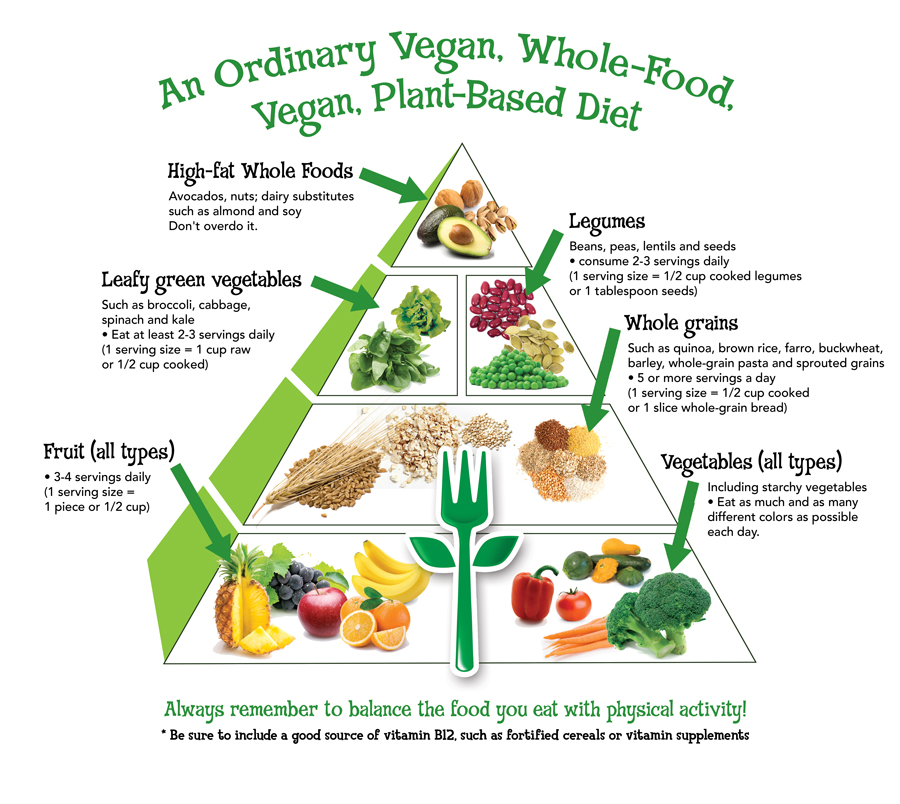Plant Based Beef vs. Traditional Meat: Which Is Better for the Environment?
Plant Based Beef vs. Traditional Meat: Which Is Better for the Environment?
Blog Article
Everything About Healthy Food: Advantages of Checking Out Plant Based Alternatives
The conversation bordering plant-based diet plans has actually acquired substantial attention recently. Many individuals are discovering the prospective health and wellness advantages, nutritional advantages, and ecological impacts related to these nutritional selections. As individuals come to be extra knowledgeable about their food's influence on wellness and sustainability, inquiries occur regarding the practicalities of adopting such a way of living. What details modifications can one expect, and just how might these selections reshape not only individual wellness yet likewise the planet's future?
Recognizing Plant-Based Diet Plans
Lots of people associate plant-based diet regimens mostly with vegetarianism or veganism, these diets can encompass a wide array of eating patterns that focus on whole, minimally refined plant foods. Such diets often consist of fruits, veggies, whole grains, legumes, nuts, and seeds, while limiting or getting rid of pet items. This flexibility allows individuals to tailor their nutritional choices according to nutritional requirements and personal preferences. Some might adopt a mostly plant-based diet regimen while still sometimes consuming meat or milk, typically described as a flexitarian approach. The emphasis remains on including more plant foods, which can bring about a diverse variety of dishes and flavors. Recognizing these various interpretations of plant-based consuming is important for valuing its access and appeal in contemporary food society.
Wellness Benefits of Plant-Based Foods
The health advantages of plant-based foods are significant, using a nutrient thickness benefit that supports general health. Research indicates that these foods can improve heart health and wellness and play a crucial role in efficient weight monitoring. By including extra plant-based alternatives, people may improve their dietary options and promote long-term health.
Nutrient Thickness Benefit
Nutrient density plays a crucial duty in the wellness advantages of plant-based foods, making them a compelling option for those seeking a balanced diet. Plant-based foods, such as fruits, veggies, vegetables, nuts, and entire grains, are commonly abundant in vital vitamins, minerals, and antioxidants while being lower in calories. This high nutrient thickness permits individuals to eat less calories while still fulfilling their nutritional needs. Furthermore, these foods are loaded with dietary fiber, promoting gastrointestinal health and helping in weight management. By integrating nutrient-dense plant-based alternatives, customers can enhance their overall wellness, support their body immune systems, and lower the danger of chronic conditions. Eventually, the nutrient density of plant-based foods emphasizes their relevance in a health-conscious lifestyle.
Heart Wellness Enhancement

Weight Monitoring Support
In enhancement to advertising heart health and wellness, a plant-based diet plan can significantly aid in weight monitoring. This dietary strategy highlights whole foods such as fruits, veggies, legumes, nuts, and entire grains, which are usually reduced in calories and greater in fiber compared to animal-based items. The high fiber content aids increase satiation, reducing general calorie consumption. Plant-based diet plans are usually rich in necessary nutrients while low in undesirable fats, making it easier to preserve a healthy and balanced weight. Study indicates that people who adopt a plant-based way of life often tend to have lower body mass indexes (BMIs) and experience even more effective weight reduction contrasted to those that eat meat-heavy diet regimens. Welcoming plant-based alternatives is a tactical selection for reliable weight monitoring.
Nutritional Worth of Plant-Based Ingredients
Plant-based components are abundant in crucial nutrients, offering a diverse array of vitamins, minerals, and anti-oxidants that add to overall health. A comparison of healthy protein sources reveals that while animal products are frequently deemed premium, many plant-based choices supply sufficient healthy protein and other helpful substances. Comprehending the dietary worth of these components can assist individuals make informed dietary options.
Vital Nutrients in Plants
Nutrient-rich components found in plants offer a varied variety of vital minerals and vitamins that contribute substantially to total wellness. These components are rich in vitamins A, C, and K, which sustain immune function, vision, and blood clotting, respectively. Furthermore, plants supply crucial minerals such as potassium, magnesium, and calcium, essential for heart health and wellness, muscle function, and bone toughness. The existence of fiber in plant-based foods aids food digestion and promotes a healthy gut microbiome. Anti-oxidants, discovered perfectly in vegetables and fruits, aid battle oxidative stress and lower inflammation. Many plant foods are low in calories yet high in nutrients, making them a superb option for those seeking to preserve a healthy and balanced weight while guaranteeing ideal nutrient intake.

Comparing Protein Sources
Protein resources differ substantially in their nutritional profiles, with plant-based ingredients supplying one-of-a-kind benefits. Unlike pet proteins, which often contain hydrogenated fats and cholesterol, plant proteins tend to be reduced in these harmful elements. Legumes, nuts, seeds, and whole grains are abundant in important amino acids, fiber, vitamins, and minerals. For instance, lentils give high healthy protein content alongside substantial iron and folate, while quinoa is a full protein, supplying all 9 crucial amino acids. Additionally, plant-based proteins are often come with by antioxidants and phytochemicals that sustain overall health and wellness. The shift to plant-based healthy protein sources not just enhances nutritional consumption but additionally aligns you can try these out with lasting nutritional practices, lowering environmental effect and promoting long-term health and wellness benefits.
Environmental Influence of Plant-Based Eating
As recognition of climate modification expands, numerous individuals are discovering sustainable dietary choices that can greatly minimize their ecological footprint. Plant-based eating has actually become a significant contributor to minimizing greenhouse gas exhausts, which are primarily connected with animals manufacturing. The cultivation of fruits, beans, vegetables, and grains commonly calls for less sources, such as water and land, contrasted to pet farming. Additionally, plant-based diets can result in reduced logging, as much less land is needed for grazing animals or expanding pet feed. By shifting towards plant-based options, customers can support biodiversity and promote healthier communities. Generally, accepting plant-based consuming not only benefits personal health and wellness yet also represents an important step toward ecological sustainability and preservation initiatives.
Overcoming Common Misconceptions
While numerous individuals recognize the advantages of a plant-based diet plan, a number of false impressions commonly deter them from fully welcoming this way of living. An usual belief is that plant-based diet plans lack sufficient healthy protein; nonetheless, numerous plant sources, such as legumes, nuts, and tofu, provide enough healthy protein. Furthermore, some assume that this diet regimen is pricey, when actually, staples like beans, rice, and seasonal vegetables can be quite budget friendly. An additional false impression is that plant-based eating is excessively restrictive, whereas it really provides a varied variety of tastes and foods. Numerous stress that a plant-based diet plan might lead to deficiencies, yet with appropriate planning, people can obtain all needed nutrients, including vitamins and minerals, while appreciating a broad selection of tasty dishes.
Tips for Transitioning to a Plant-Based Way of life
Making the shift to a plant-based way of living can be an enhancing experience, though it frequently calls for some guidance to browse the initial adjustments. Initially, individuals are urged to start progressively, incorporating even more fruits, vegetables, vegetables, and entire grains into their meals while lowering meat and dairy consumption. Meal planning is crucial; preparing an once a week menu can help relieve the modification and protect against last-minute undesirable selections. Discovering cooking approaches and brand-new dishes can also enhance the experience and maintain enjoyment concerning plant-based consuming. Additionally, signing up with support groups or neighborhoods can supply inspiration and share beneficial ideas. Ultimately, remaining educated concerning nourishment warranties well balanced dishes, protecting against shortages while promoting a healthy and balanced, enjoyable plant-based way of living.
Delicious Plant-Based Meal Concepts
Exploring delicious plant-based dish ideas can influence people to welcome a more healthy diet regimen. One popular choice is a passionate quinoa salad, featuring cherry tomatoes, cucumber, and a zesty lemon-tahini clothing. An additional favorite is a tasty lentil stew, loaded with carrots, celery, and great smelling herbs, excellent for a reassuring supper. For breakfast, over night oats made with almond milk, chia seeds, and covered with fresh berries provide a healthy beginning to the day. In addition, a vibrant vegetable stir-fry with tofu and a range of vibrant veggies can be a fast yet pleasing meal. Finally, velvety avocado toast on whole-grain bread, sprayed with spices and seeds, provides a basic yet savory treat. These meals showcase the variety and richness of plant-based eating.

Often Asked Questions
Can a Plant-Based Diet Supply Sufficient Healthy Protein?
The question of whether a plant-based diet regimen can supply adequate healthy protein prevails. Many sources, including vegetables, nuts, seeds, and entire grains, can fulfill protein needs properly, supporting a balanced and nourishing diet regimen for people.
Are Plant-Based Diet Plans Suitable for Kid?
The suitability of plant-based diet plans for children depends upon cautious preparation. Appropriate nutrients must be assured, consisting of vitamins, minerals, and proteins. With proper support, such diets can sustain healthy and balanced growth and growth in children.
Exactly how Do I Eat Out on a Plant-Based Diet?
Eating out on a plant-based diet plan entails seeking dining establishments with diverse food selections, asking for adjustments, and discovering vegan-friendly options. Planning in advance and interacting nutritional choices can enhance the dining experience while keeping dietary options.
What Are Usual Allergens in Plant-Based Foods?
Common allergens in plant-based foods consist of soy, gluten, nuts, and seeds - this website BBQ Sauces. Individuals complying with a plant-based diet regimen needs to recognize these irritants and check out labels meticulously to stay clear of unfavorable responses and assure secure consumption
Can Plant-Based Diets Help With Weight Management?
Research official statement indicates that embracing a plant-based diet plan may assist in weight management as a result of its typically lower calorie density and higher fiber material. This mix can boost satiation, assisting people manage their caloric intake efficiently. Lots of people connect plant-based diet plans mainly with vegetarianism or veganism, these diets can encompass a wide array of consuming patterns that prioritize entire, minimally processed plant foods. Nutrient density plays a vital duty in the wellness advantages of plant-based foods, making them a compelling selection for those looking for a well balanced diet plan. Plant-based diet plans have been revealed to significantly boost heart health and wellness, as they frequently consist of aspects that sustain cardiovascular feature. In enhancement to promoting heart health, a plant-based diet plan can considerably assist in weight administration. A common idea is that plant-based diet regimens do not have sufficient protein; nonetheless, many plant sources, such as vegetables, nuts, and tofu, provide enough protein.
Report this page